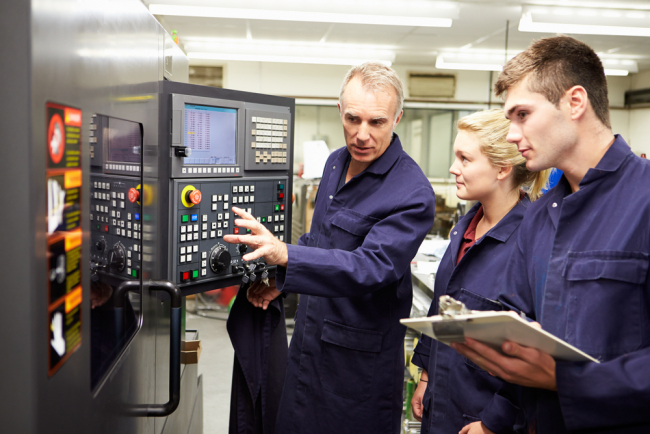German Economy
Germany is the leading economic power in Europe with a highly internationalized system. It is currently compelled to adapt to a declining globalization and a transition in its energy model.
Social Networks: The Fight Against Illegal Content in Germany
The German Legislation on Improving Law Enforcement in Social Networks (Netzwerkdurchsetzungsgesetz – NetzDG), which came into force on October 1, 2017, is the legislative response to how social networks handle complaints about illegal content.
Where Is the SPD Going? The German Social Democrats and the Way out of Crisis
Whether we think of France, Greece, the Netherlands, Poland, Austria or Germany, the social democratic or socialist parties in Europe are losing ground or even facing dissolution. Ironically, the crisis of the Social Democratic Party of Germany (SPD) began with the resounding victory of Gerhard Schröder in 1998.
Tackling the Root Causes of Displacement: the German Discourse
In Germany, an important role is ascribed to development policy when considering the question of how to deal with the causes of displacement and irregular migration. Development policy seeks to enable (potential) migrants to enjoy brighter prospects in their countries of origin through job creation measures so that they do not embark on the dangerous journey to Europe (or Germany) in the first place.
Between political crisis and European recovery attempt: German interrogations
Even though the CDU-CSU led Grand Coalition was renewed following the German legislative elections of 24 September 2017, and even though Angela Merkel was re-elected chancellor a fourth consecutive term, the country has entered a period of growing political uncertainty. The formation of a new government took much longer than after previous elections for a number of different reasons: after negotiations, the liberal party refused to join a coalition with the CDU-CSU and the Green party, the SPD was reluctant to continue in government, and, above all, the internal divisions of the two sister parties CDU et CSU, that nearly caused the fall of the new government three months after its investiture.
The Real Roots of Germany's Defense Spending Problem
The 1970s were a decade of anti-war movements. Willy Brandt received the Nobel Peace Prize for his détente policy toward the Eastern Bloc – and West German defense spending peaked at 3.13 percent of GDP in 1975. Clearly, those days are long gone.
Dual system of professional training: keystone of "made in Germany"?
The German dual system of professional training is seen as an international reference model. It aims at training qualified employees for an innovative economy rather than being the last resort for less able pupils. Parents and adolescents regard apprenticeships as an entry ticket to a good job with career opportunities; companies value the advantages of practice-oriented training in situ conceived in cooperation with its own professionals as this spares them the costs of integrating school graduates.
Five theses on the "refugee crisis" in Germany
The term "refugee crisis" is not uncontroversial in Germany; it is indeed accused of presenting the refugees as being responsible for the crisis. The events that have occurred since the summer of 2015 should rather be called "crisis of the authorities", given that Germany could have anticipated the massive increase in the number of refugees. The use of the term "refugee crisis" in this article is axiologically neutral and reflects its present common use in politics, the media and specialised literature.
Support independent French research
Ifri, a foundation recognized as being of public utility, relies largely on private donors – companies and individuals – to guarantee its sustainability and intellectual independence. Through their funding, donors help maintain the Institute's position among the world's leading think tanks. By benefiting from an internationally recognized network and expertise, donors refine their understanding of geopolitical risk and its consequences on global politics and the economy. In 2024, Ifri will support more than 70 French and foreign companies and organizations.













